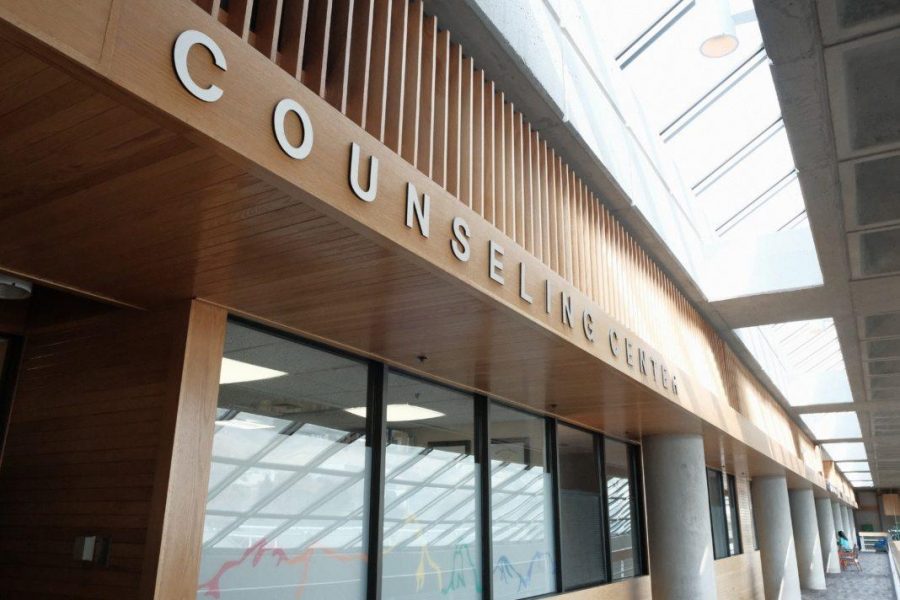Unpaid Internships: Does Experience Pay the Bills?
(Design by Claire Peterson | The Daily Utah Chronicle)
February 11, 2023
Despite the fact that 44% of businesses are in the market for interns in 2022, according to a survey from The Harris Poll commissioned by Express Employment Professionals, a large amount of these positions are unpaid: 39.2% of intern positions in the U.S. still lack some form of compensation, according to Zippia.
Many majors at the University of Utah, such as journalism and social work, require internship completion for students to graduate, with this experience going towards their total amount of credits.
This demand for interns has increased along with inflation rates, with inflation peaking at 9.1% this year, causing many people to restrict their budgets as the cost of living increases, according to J.P Morgan.
Ella Pilling, a sophomore at the U studying strategic communications, said that many students are expected to complete an internship before graduating college, but unpaid internships put students who rely on monthly income in a tough position.
“If we want students to take on internships for experience, but we aren’t paying them, how are we going to be able to expect them to pay for college?” Pilling said.
James Curry, an associate professor of political science at the U, said unpaid internships make it difficult for students to participate and gain experience for their career, especially when the internship in question has additional housing or travel costs attached.
“If you don’t have money laying around, it’d be harder for you to complete an internship if you’re not being paid, especially if you’re moving across the country to a place like Washington D.C., which happens to be an incredibly expensive place,” Curry said.
While internships aren’t vital for getting a job after college, they give students an advantage by providing them with the experience and networking skills needed for their career in the future, explained Curry.
“It gives you the opportunity to network … meet people and hopefully set yourself up nicely to apply for jobs, with those same people later on,” Curry said. “You can get the advantage of getting people who could become potential references for you who work in that world and who may be trying to hire you later.”
Students who complete an internship before graduation were found to be much more likely to receive several job offers after graduation, according to College Recruiter.
While internships may offer valuable career experience to students, Pilling said that the value of the work interns do cannot be underestimated, and interns being students shouldn’t be an excuse to not provide payment.
“I think [internships are] a really good opportunity for students, but just because the students may not have a degree doesn’t mean that they aren’t doing the same work that someone else is doing,” Pilling said.
According to Curry, unpaid internships, especially in places like Washington D.C., are a result of a lack of financial backing, and unpaid interns can provide crucial support for offices that lack pre-existing resources.
“This is a budget that they need to use anyway to pay all their staff, pay for office supplies, pay for a lot of travel, and do everything else, which usually means they don’t have enough staff,” Curry said. “So an easy solution to a lack of resources is unpaid interns because they can help out in a number of ways.”
Curry added that if students are participating in unpaid internships through their university, he believes the institution should provide them with some sort of compensation to live on, especially since most universities have the resources to do so easily.
“If a host office doesn’t have the money in this, turning to interns in part because of the lack of resources, potentially universities can fill that void and use some of the money they raise through various means to provide those interns with pay,” he said.
There are internships available at the Hinckley Institute that are paid, but for some internships that aren’t paid, the U provides a stipend to the student. According to Curry, this is just one way the institution is making internships more accessible to students.
“That, in my perception enables anyone who would potentially want to do an internship to do one, because they shouldn’t have to worry about the financial side of it,” Curry said.
Curry thinks internships are great opportunities for people to learn more about their careers, but people shouldn’t be barred from doing so based on income needs.
“People shouldn’t have to live in abject poverty in order to have those experiences,” Curry said.









